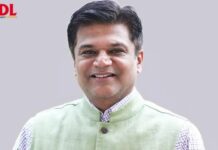With the Union Budget 2025-26 approaching, India’s education sector is eagerly awaiting announcements that will fuel innovation, bridge infrastructure gaps, and position the country as a leader in EdTech. Industry leaders and stakeholders are advocating for bold investments and strategic policy shifts to align the country’s education system with its economic ambitions.
Scaling Education Investments to Meet NEP 2020 Goals
One of the most anticipated moves for Budget 2025 is the significant boost in the education sector’s funding, with many calling for an allocation of 6% of GDP, a key target outlined in the National Education Policy (NEP) 2020. Praveen Singh, CEO of Aasoka (MBD Group), sees this as essential for fulfilling the ambitious Gross Enrolment Ratio (GER) targets in higher education, expanding skill development programs, and making quality education accessible to millions. “Such an investment will not only ensure access to quality learning but will drive public-private partnerships and create sustainable employment opportunities,” he explains.
However, to truly achieve these goals, Singh stresses the importance of addressing outdated infrastructure, limited digital tools, and unreliable internet access, which remain barriers to preparing India’s youth for a tech-driven job market.
Digital Infrastructure and EdTech: Bridging the Divide
The need for robust digital infrastructure continues to dominate discussions around Budget 2025. Aarul Malaviya, Founder of Zamit, advocates for government investments to enhance technology integration in schools and colleges. “Tax incentives for EdTech platforms, coupled with support for teacher training and a focus on future-ready skills, will drive both innovation and accessibility,” he says.
The foundation laid in the 2024 Budget by prioritising digital learning, virtual labs, and the Digital University initiative provides a strong starting point for 2025. Stakeholders are optimistic that this momentum will continue, ensuring modern digital tools and resources reach even the most remote educational institutions.
Also Read :- 1 Million Students to Benefit as upGrad and Maharashtra Join Hands for AI and Emerging Tech Push
Public-Private Partnerships: Catalyst for Innovation
Public-private partnerships (PPPs) are poised to be a driving force in India’s educational transformation. Dr. Yajulu Medury, Vice Chancellor of Mahindra University, believes that Budget 2025 should focus on creating a conducive environment for innovation through tax incentives, simplified regulations, and support for young entrepreneurs. “Enhanced incubation programs, industry-aligned training, and faster patent approvals are essential to fuel technological advancements and skill development,” he says.
Such measures will not only strengthen India’s EdTech ecosystem but will also bridge the gap between academic knowledge and real-world application, empowering students to meet the demands of the rapidly evolving job market.
EdTech for Creative Economy
India’s creative sectors, spanning animation, AR/VR, and design, are seeing exponential growth and offer a unique opportunity for EdTech to play a central role. Dr. Sanjay Gupta, Vice Chancellor of the World University of Design, sees the upcoming budget as a pivotal moment to boost these industries. “The global creative economy is projected to reach $165 billion by 2030, and India has the potential to be a key player,” he says. By supporting EdTech platforms that focus on design education and immersive technologies like AR/VR, the government can catalyse India’s transition from a service provider to a global leader in the creative economy.
A Roadmap for Future Growth
Budget 2025 represents an opportunity to drive India’s education sector into a new era, one that is inclusive, innovative, and aligned with global trends in technology and skill development. Key priorities should include increased funding, a stronger emphasis on digital infrastructure, and policies that promote public-private collaboration.
By addressing critical infrastructure gaps and investing in EdTech, India can create an education ecosystem that empowers learners, equips them with future-ready skills, and strengthens the country’s global position as a leader in education and innovation.





























